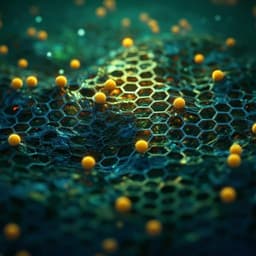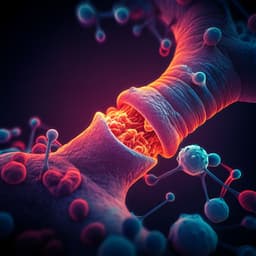
Chemistry
Emergence of a short peptide based reductase via activation of the model hydride rich cofactor
A. Chatterjee, S. Goswami, et al.
This research showcases innovative short peptide-based amyloid nanotubes that effectively bind and reduce ester substrates in water using weak hydride transfer agents, demonstrating recyclability and controlled reduction. Conducted by Ayan Chatterjee, Surashree Goswami, Raushan Kumar, Janmejay Laha, and Dibyendu Das, the findings could reshape our understanding of protometabolism on early Earth.
Related Publications
Explore these studies to deepen your understanding of the subject.







